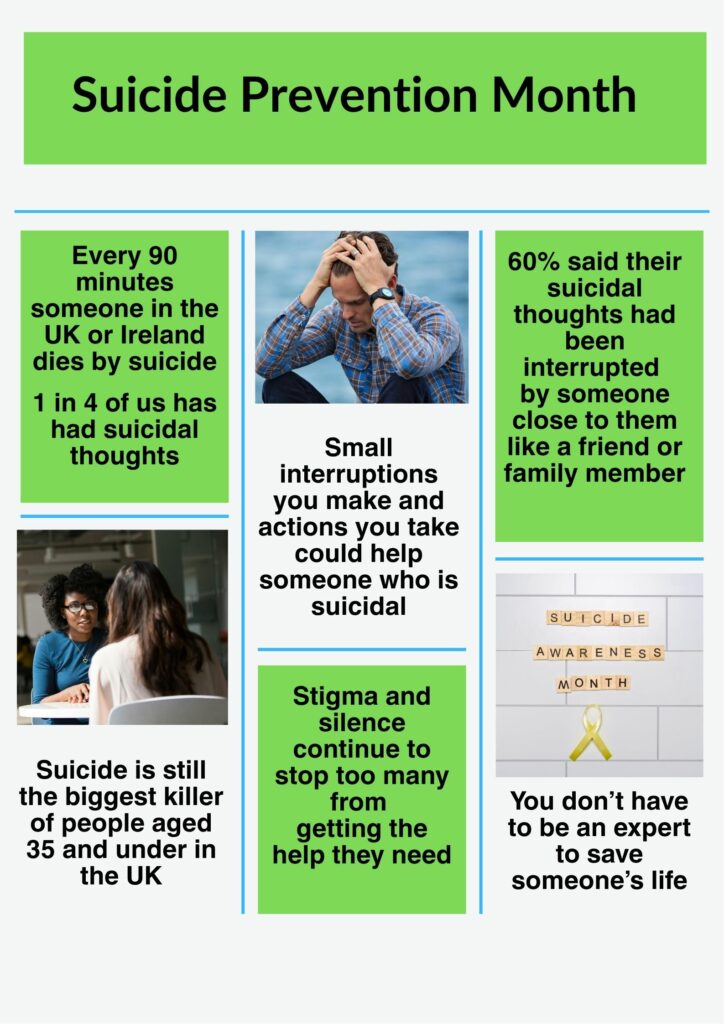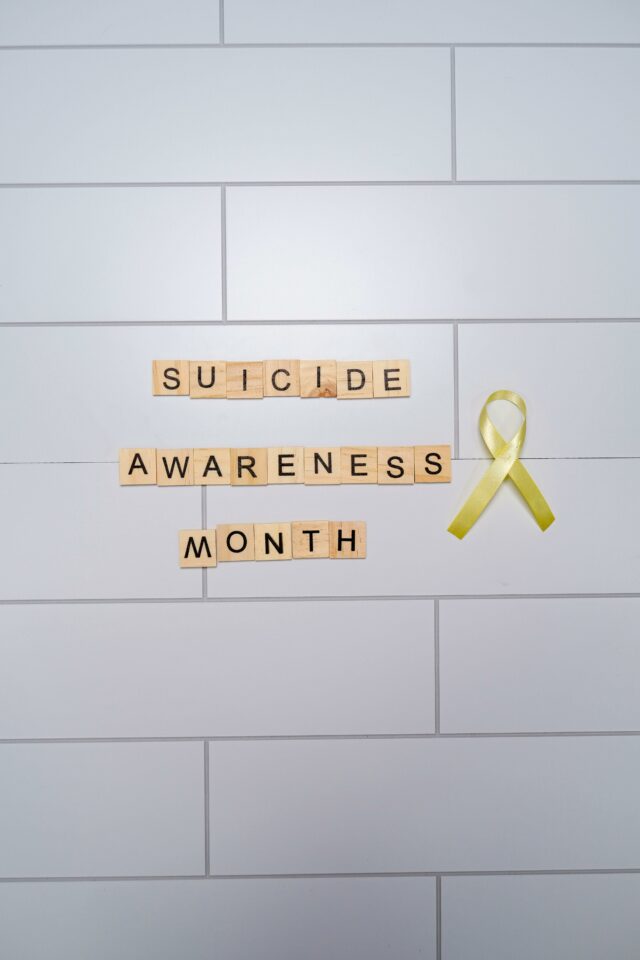Suicide: A Public Health Issue in the UK and Worldwide
Suicide is a significant public health concern both in the UK and globally. People of all ages and backgrounds may experience suicidal thoughts at some stage in their lives.
While statistics are widely available, they cannot capture the hidden impacts of suicide — often described as the ripple effect. This refers to the lasting grief, confusion and pain felt by families, friends and communities left behind. Every suicide is a tragedy with long-term consequences for those affected.

Suicide and Mental Health
The link between suicide and mental health is well established. Conditions such as depression, anxiety and alcohol misuse can increase risk, as can a history of previous suicide attempts.
However, many suicides occur impulsively during moments of crisis. Stressful life events such as:
-
Relationship breakdowns
-
Financial difficulties
-
Chronic illness or pain
-
Conflict, abuse or violence
-
Experiences of loss or disaster
...can overwhelm a person’s ability to cope, leading to feelings of hopelessness.
Vulnerable Groups at Higher Risk
Certain groups face a disproportionately higher risk of suicide due to discrimination and marginalisation, including:
-
LGBTQIA+ individuals
-
Refugees and migrants
-
People in prison
Recognising these risks is vital in creating effective prevention and support strategies.
Suicide Can Be Prevented
It is important to understand that most people experiencing suicidal thoughts do not want to die — rather, they want relief from the intense emotional pain they are facing. With the right support, treatment and compassion, many people who once felt suicidal go on to live fulfilling lives.
Common Warning Signs
-
Talking about hopelessness or feeling like a burden
-
Withdrawing from family, friends or social activities
-
Giving away belongings or making farewells
-
Increased use of alcohol or drugs
-
Engaging in risky or reckless behaviour
Often, distress is communicated indirectly. Recognising these signals and starting a compassionate conversation can make a life-saving difference.
Breaking the Silence
Many people find it difficult to speak about suicidal feelings. Common barriers include:
-
Fear of being judged
-
Worry that others will not take them seriously
-
Uncertainty about who to confide in
-
Concern that they will not be understood
Opening up, however, is often the first step towards healing. Remember: you are not alone, you deserve support, and help is available.
Finding Help and Support
If you or someone you know is struggling with suicidal thoughts, reaching out as early as possible is crucial. Professional help, peer support and self-care can all make a meaningful difference.
📌 Our resources section includes direct links to:
-
Crisis and suicide prevention helplines
-
Support services for individuals experiencing suicidal thoughts
-
Guidance for those supporting someone in crisis
Final Thoughts
Suicide can feel like an impossible subject to discuss, but open conversations help to reduce stigma and can save lives. By increasing awareness, recognising warning signs and offering support, we can all play a part in suicide prevention.
Resources:
FOR ME - Support poster Aug V1.0
PAPYRUS-Conversation-Starters-2023-DIGITAL
Suicidal Thoughts can be Interrupted
Suicide Let's Talk Poster 2025 V1.0_compressed


